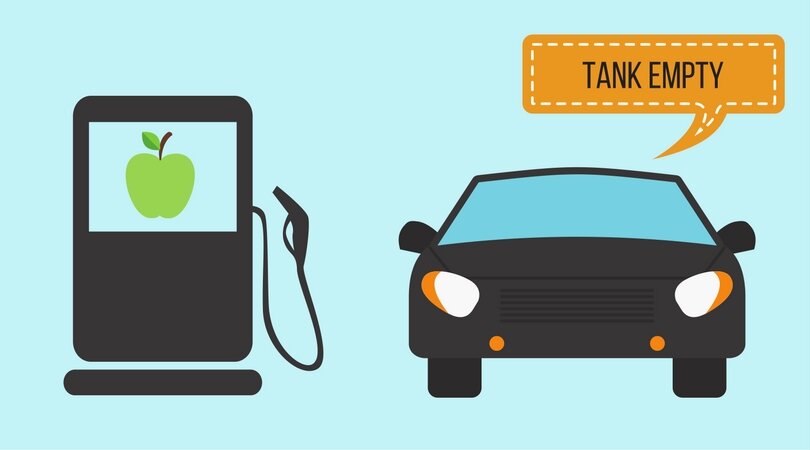Are you Eating Enough?!
Written by Ellie AndersonFriendship Nutrition Club is already halfway through the 2018 New Year challenge! This group has been working to perfect their macronutrient levels at a point that will maximize performance, and be sustainable for real life moving forward (Read this for more info on sustainability). They're not on a crash diet, and for a lot of them this is a new challenge. I'm so proud of all of the participants this year, and expect big things from them!The biggest struggle for many people has been eating the amount of calories they’ve been prescribed. As a nutrition coach this is nothing new for me. Many people come to me with weight loss or body composition goals and are surprised when I ask them to eat more than what they’re already eating.Their body has been stuck at the same weight for months. They’re adding more workouts, trying to add more activity throughout the day, eating small meals of only clean foods, maybe trying a new cleanse, protein bar, diet pill… Why won’t their body just get on board?!Maybe...
- You’re never hungry
- You “forget” to eat breakfast or lunch
- Workouts tire you out and your muscles have trouble recovering
- You don’t track your food, you just “eat clean”
The problem is we think of food as adding to our body. If we eat too much or eat something bad, our body will keep it and make us bigger. This is ingrained in our society through years of poor nutritional advice and chasing skinny, not functional, body types.I talk to a lot of people that have been scared away from calories in one way or another: fat will make you store fat (or is it carbs that does that?), sugar will definitely kill you, and if you miss a workout, you can probably skip a meal because you didn’t burn anything. We eat more protein and vegetables, less packaged foods and starches, and hope if we don’t overdo it, we won’t gain weight. We’ve missed the point that our bodies are living, purposeful organisms in desperate need of energy. Think of your body as a super efficient machine with one main goal: keeping you alive. It’s actually pretty cool if you think about it! Your body will do what it needs to do regardless of what and how much you give it. Our bodies have a long list of priorities to accomplish 24/7: beating your heart, expanding your lungs, fueling your brain for all mental and motor skills, transporting hormones, digesting food, blinking your eyes… the to-do list is really long! Unfortunately, you can imagine that fueling your workouts and changing your body composition are pretty low-priority. Let’s go back to not eating enough. You’ve probably heard of “eating every two hours so your body doesn’t go into starvation mode”, right? Starvation mode isn’t really a thing for us (we’re not actually starving to death) and your metabolism doesn’t change quite that quickly - but over time, you will slow down your metabolism by eating too few calories.Without enough food, your body will make changes so that it can run on less. Your metabolism, a sum of chemical processes working to keep you alive, will cut out any unnecessary tasks so it can use the small amount of fuel it has on more important things. Some of the “extras” that get knocked off the priority list:
- losing weight
- burning body fat
- gaining muscle
- intense workouts
- recovery
- mental energy
Crap! How do we move our metabolism beyond this mode of strict prioritization? Eat. More. Yes, it really could be that simple! You can’t change your metabolism overnight, in fact it can be a long journey for some who have been undereating for years. But you do need to start by giving your body more calories to complete its task list. Over time, your metabolism will start expanding into changing your body composition because you’ve finally given it enough fuel to do so. “Sweet! Ellie said I should eat more. Pizza tonight!”Don’t do that. I recommend you take these steps:
- Track your normal weekday food intake in MyFitnessPal for a few days to see where you’re starting. You can’t improve if you’re not aware of your starting point.
- Talk with a coach you trust about what your daily caloric intake should be. Everyone’s body and needs are different, so there is no one-size-fits-all minimum recommendation.
- Start a slow calorie increase of 100 calories per week until you reach your goal. You can jump to your calorie goal right away, but since your body has been running on less, you might struggle with a rapid increase, both physically and mentally.
- Stick with it! This isn’t an overnight fix, but for your long-term goals and wellness, this change can be substantial.
If eating too little hasn’t worked for you yet, why not give fueling your body a try?Coach Ellie Anderson is a certified Precision Nutrition coach. If you're interested in working on nutrition contact her at Ellie@friendshipcrossfit.com -- If you're interested in starting CrossFit click here for more info!

